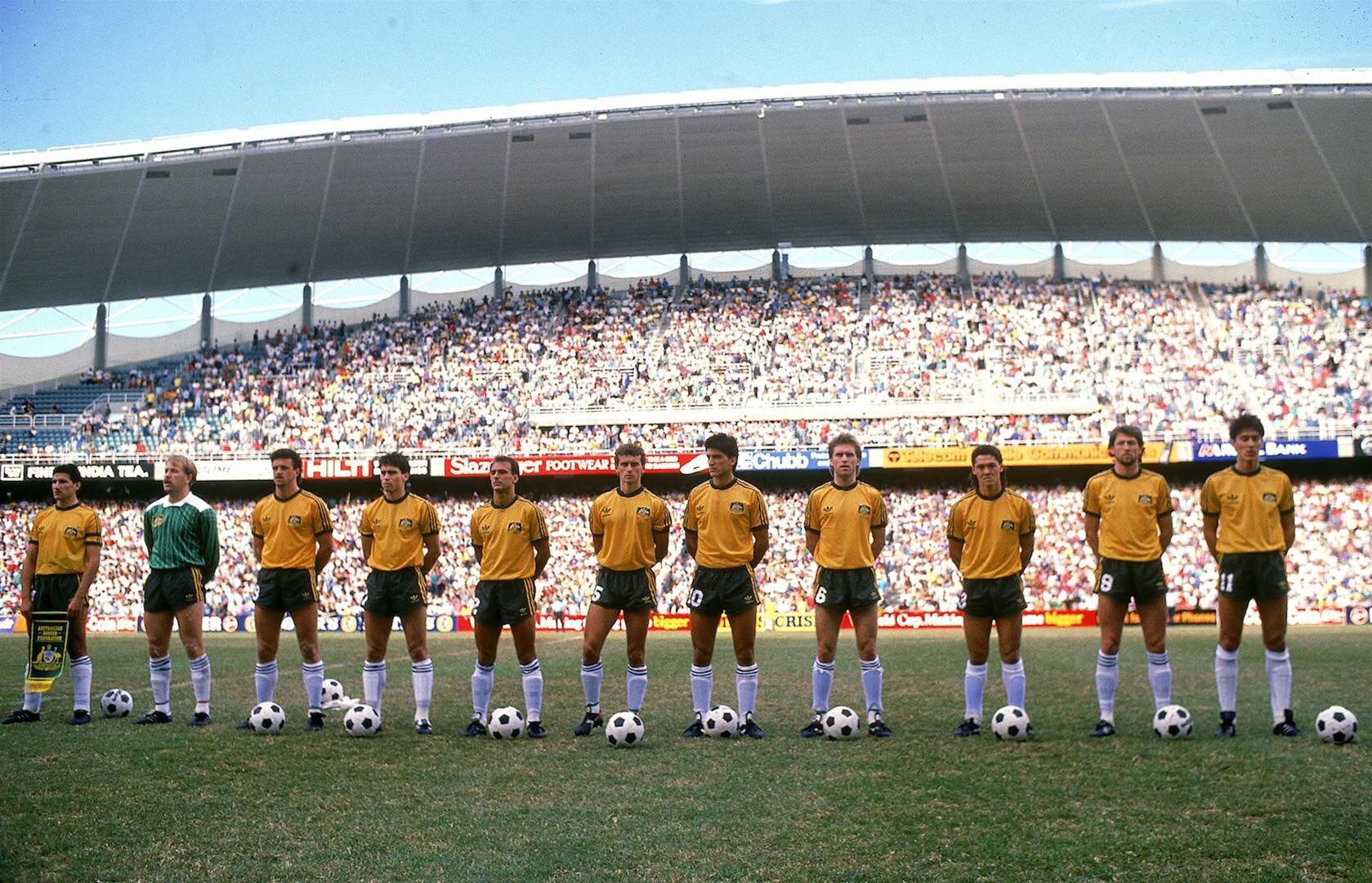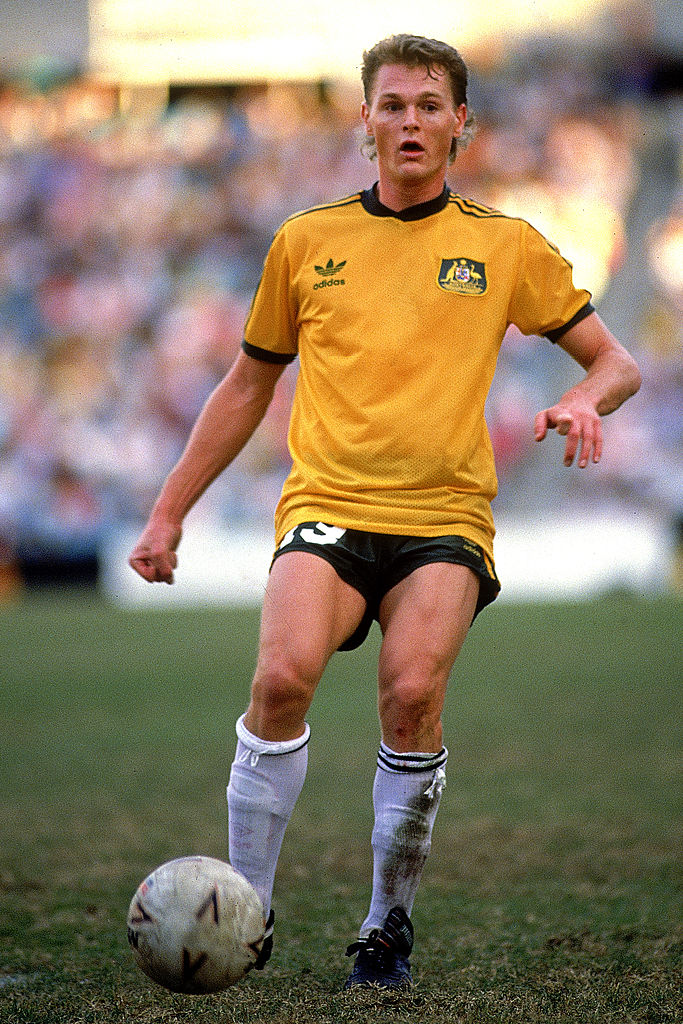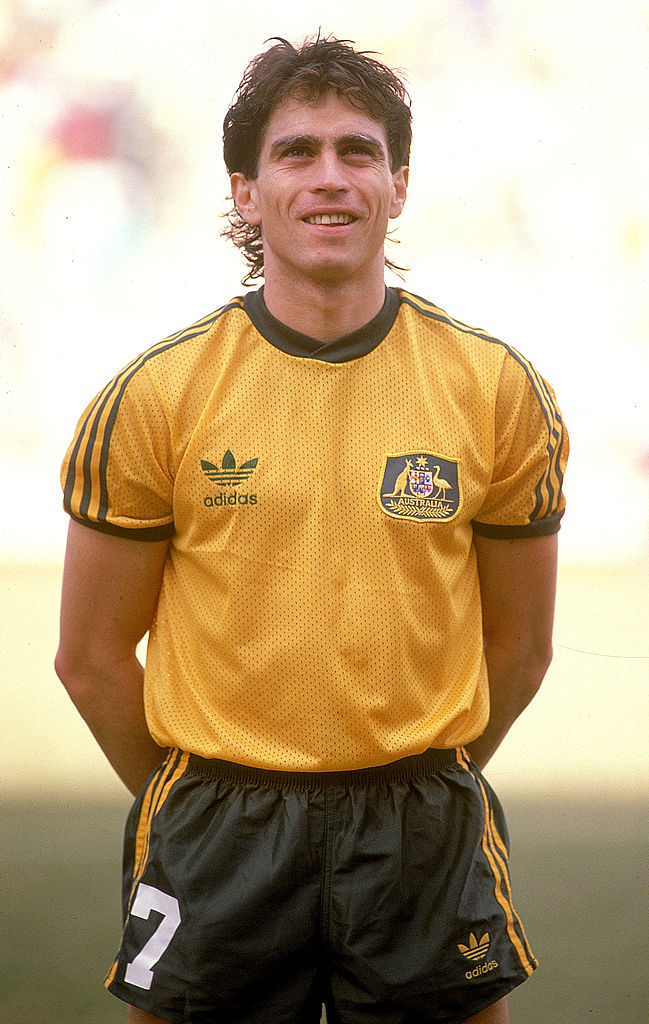As we celebrate a century of Socceroos memories in the lead-up to September's series against New Zealand, each week we'll be looking back at a major tournament the team have played in over the years.
We'll be working back in time, covering 11 tournaments that are all significant parts of our story: the 2018 FIFA World Cup, 2015 AFC Asian Cup, 2014 FIFA World Cup, 2010 FIFA World Cup, 2006 FIFA World Cup, 1997 Confederations Cup, 1992 Olympics, 1988 Gold Cup, 1974 FIFA World Cup, 1967 Friendly Nations Tournament and the 1956 Olympics.
Our eighth piece looks at the Socceroos' 1988 Gold Cup campaign in Australia.
Read on to re-live the tournament in detail, and keep an eye on the Socceroos' social media channels for more special content, and a chance to share your memories of these matches.

The 1988 Australian Bicentennial Gold Cup was a one-off tournament to celebrate the bicentennial of the first settlement at Port Jackson by Captain Arthur Phillip in 1788.
Our coach
The Socceroos' coach for the 1988 Gold Cup campaign in Australia was Frank Arok.
In the late 1960s, Arok migrated to Australia from the Kingdom of Yugoslavia and commenced his esteemed career in the Australian game with St. George Budapest.
Arok managed Australia in 89 international matches between 1983 and 1990, with 48 of these fixtures being ‘A’ internationals.
His record as National Team coach was strong, with 41 of his 89 fixtures in charge ending in success for Australia, while he also recorded 22 draws.
READ: 'What an introduction!': Ray Gatt's special Frank Arok experience
Arok also enjoyed a prodigious career at club level, tasting success with St. George Budapest, Marconi, South Melbourne and the Gippsland Falcons.
Sadly, Arok passed away at the age of 88 in January 2021 but his commitment to the Green and Gold will never be forgotten.
Our squad
The squad was largely made up of Australian-based players, but it saw Charlie Yankos, Frank Farina, Robbie Slater and Graham Arnold take part before commencing successful careers in Europe.

Socceroos (Club at time of 1988 squad announcement)
Goalkeepers: Jeff Olver (Melbourne Croatia)
Defenders: Alan Davidson (Melbourne Croatia), Robbie Dunn (Melbourne Croatia), Graham Jennings (Sydney Croatia), Walter Savor (Sydney Croatia), Charlie Yankos (APIA Leichhardt)
Midfielders: Vlado Bozinoski (Footscray JUST), Paul Wade (South Melbourne), Oscar Crino (Footscray JUST), Robbie Slater (Sydney United), Michael Petersen (Brunswick Juventus)
Attackers: Graham Arnold (Sydney United), Frank Farina (Marconi Stallions), Scott Ollerenshaw (St George)
Our location
The 1988 Gold Cup was held in Australia.
Matches were played across Adelaide, Melbourne, Sydney and Canberra with the final being played at the newly opened Sydney Football Stadium.

Our opponents
The Gold Cup was contested by 1988 AFC Asian Cup winners Saudi Arabia, 1986 FIFA World Cup winners Argentina, world number one-ranked side Brazil and host nation Australia.
Teams played each other once in a round-robin group stage. Each team was awarded 2 points for a win, 1 for a draw and 0 for a loss. The top two teams from the group played in a final and the bottom two teams played in a third-place match.

Our results
So to the Gold Cup tournament itself.
Arok's side kicked off their tournament with a 1-0 loss against Brazil at Olympic Park in Melbourne. Romario opened the scoring in the 31st minute and while the Socceroos battled hard to overturn the deficit, the task was too big.
However, the Green and Gold's second game produced the reaction Arok was looking for. The Socceroos bounced back by brushing aside Saudi Arabia 3-0 at Parramatta Stadium courtesy of two goals from Frank Farina and one from Scott Ollerenshaw.
Australia rounded off the group stage by thumping Argentina 4-1 at the Sydney Football Stadium in front of 19,000 fans.
The side defied all the odds to embarrass the reigning World Champions on home soil. The match will never be forgotten in the football annuals of Australian football, not just because of the amazing result, but for one special moment just before half time.
The match was delicately poised at 1-1, after Paul Wade had given Australia the lead after just four minutes, while Oscar Ruggeri had evened it up on the half-hour.
Receiving a free kick some 30 metres out, captain Charlie Yankos stepped up and the rest is history. With the three-man wall set, Yankos, directly in front, decided he would blast a shot at goal. Hitting the ball with venom, the Argentinean at the end of the wall, decided to avoid the shot, thinking it would be safe for the goalkeeper. However, to everyone's astonishment, the ball swerved wickedly and goalkeeper Luis Islas, despite his best efforts, could only watch as the ball kept going away from him and thumped into the back of the net.
It was a special goal and importantly had given the Australian team a decided advantage heading into the second half. Yankos would go on to score a second goal from the penalty spot, after former Socceroos coach Frank Farina was brought down in the box and the amazing win was capped off by Vlado Bozinovski with ten minutes remaining with the fourth and final goal.
The result had stunned everyone, not least the Argentineans, who could not quite believe they lost to their lowly rivals. Australia would go on to lose the final in controversial circumstances against Brazil 2-0.
